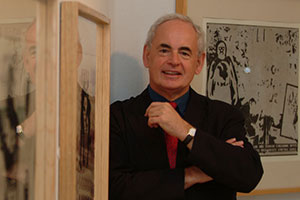27 September 2013
Public perception of government's trustworthiness and honesty has plummeted

Professor Paul Whiteley
The percentage of people who think that the Government is honest and trustworthy has been in overall decline since the high of the 1997 General Election - dropping to significant lows during the Iraq War, the election that followed, and the MP’s expenses scandal, according to a new study by Professor Paul Whiteley from the Department of Government at the University of Essex.
Just 34 per cent of people asked think that the British Government from 1997 to 2013 has, on balance, been honest and trustworthy, with 57 per cent feeling they have been dishonest.
Evaluations of the Labour leader also decreased considerably in this period – as did satisfaction with democracy. The change of government in 2010 gave a boost to perceptions of government honesty, but the effect was temporary and rapidly dissipated.
Setting out to ascertain why voters lose trust in governments, Professor Whiteley tested three broad factors which he believes drives trust; policy outcomes, policy processes and specific events, like the expenses scandal.
The data was initially collected via Gallup telephone survey, which consisted of monthly surveys from 1997 to 2003 and questioned approximately 1,000 respondents. Internet survey data from YouGov was used from 2004 to the present and, again, consisted of monthly surveys of approximately 1,000 respondents.
Professor Whiteley concludes that all policy related issues influence government honesty, meaning that performance really matters for a government’s credibility. The processes matter too, in that if people think that they are being treated fairly and that those in charge are competent, this also boosts government credibility. Political leadership is another important factor since people appear to use trust in the current Prime Minister as a heuristic for deciding whether or not to trust the Government as a whole.
Professor Whiteley believes that the study’s findings demonstrate important implications for the future, as further analysis shows that perceptions of government honesty play an important role in explaining voting intentions. Speaking of the future he said, “If trust in government is low at the time of the next election, the Conservatives will lose votes and Labour will gain them. However, if David Cameron is more popular than Ed Milliband, this will offset a lack of trust in his government. At the moment the two are equal in the popularity stakes. Interestingly, trust in government appears not to influence voting intentions for the Liberal Democrats.”
Ends
Notes to editors
For further information and to speak to Professor Paul Whiteley, please contact Catherine McDonald, Faculty Communications Officer for Social Sciences at the University of Essex, telephone: 07515 116547 or e-mail: cmcdonb@essex.ac.uk.
...more news releases